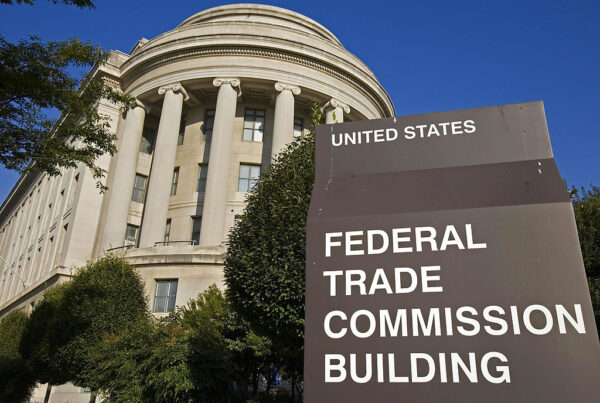
Amgen’s $28 billion deal to acquire Horizon Therapeutics has hit a regulatory obstacle. The Federal Trade Commission is suing to block the transaction, contending it would allow Amgen to make the monopoly positions of two Horizon drugs even stronger.
The FTC suit, filed Tuesday in U.S. District Court for the Northern District of Illinois, comes as the regulator keeps a close eye on M&A activity in the life sciences sector. Some industry observers fear the scrutiny on the Amgen deal could clamp down on the broader dealmaking environment.
Horizon’s two top products are for rare diseases. Tepezza treats thyroid eye disease and is a blockbuster seller accounting for more than $1.9 billion in global sales last year. Krystexxa, projected to become a blockbuster drug, treats chronic refractory gout. Neither product has a competitor on the market so far, though potential rivals have drug candidates for both indications in various stages of clinical development.
When Amgen announced the agreement to acquire Horizon late last year, the Thousand Oaks, California-based pharma giant framed Horizon’s product portfolio and pipeline as complementary to its own. Amgen’s top product is the autoimmune disorder treatment Enbrel, but the company has been hunting for products that can offset revenue declines facing the drug as its patents expire.
Usually when the FTC moves to block M&A activity, it’s because of concerns about the concentration of market power coming from the overlap of products from the companies that are coming together. In such cases, one remedy is selling off assets to another party. But Amgen and Horizon have little product overlap and that’s not the argument the regulator is making now.
Instead, the FTC says Amgen would be able to use its own blockbuster drugs for negotiating leverage with payers and pharmacy benefit managers (PBMs). The agency says Amgen has a history of “cross-market bundling,” which is the practice of offering rebates on a product, such as Enbrel, in exchange for getting preferred placement on an insurer or PBM’s list of covered medications.

A Deep-dive Into Specialty Pharma
A specialty drug is a class of prescription medications used to treat complex, chronic or rare medical conditions. Although this classification was originally intended to define the treatment of rare, also termed “orphan” diseases, affecting fewer than 200,000 people in the US, more recently, specialty drugs have emerged as the cornerstone of treatment for chronic and complex diseases such as cancer, autoimmune conditions, diabetes, hepatitis C, and HIV/AIDS.
“The value of the rebates that Amgen can offer on its high-volume drugs as part of its cross-market bundles may make it difficult, if not impossible, for smaller rivals who are developing drugs to compete against Tepezza and Krystexxa to match the level of rebates that Amgen would be able to offer,” the FTC said.
In a policy statement issued last June, the FTC said financial relationships among companies in the pharmaceuticals sector can misalign incentives in a way that stifles competition. The agency also has an ongoing inquiry into how PBMs affect the access and affordability of medicines. FTC scrutiny on M&A activity has been keeping one mega-merger from closing. Litigation over Illumina’s proposed acquisition of liquid biopsy company Grail has continued for more than two years. In April, the FTC ordered Illumina to divest Grail.
Amgen issued a statement saying it has been working with the FTC to address questions raised by its investigative staff and “believe we have overwhelmingly demonstrated that this combination poses no legitimate competitive issues.”
Amgen said its products and Horizon’s treat different diseases and patient populations. The company did not dispute the FTC’s argument that the company has engaged in bundling practices. But Amgen called the claim that it might bundle medicines at some point in the future speculative, and not reflective of the real-world competitive dynamics of providing rare disease medicines to patients. Amgen also said it has committed not to bundle the Horizon products, and it is unaware of any acquisition blocked due to a bundling theory.
In a research note, William Blair analyst Matt Phipps wrote that the suit blocking the Horizon acquisition will dampen M&A enthusiasm across the biotech sector, particularly in light of the lack of overlap across the Amgen and Horizon portfolios. However, he added that the FTC has not blocked acquisitions of smaller companies where one late-stage or commercial product is the main driver of the deal. Such transactions likely won’t face much scrutiny, except in cases of product overlap, Phipps said.
Photo: Getty Images













